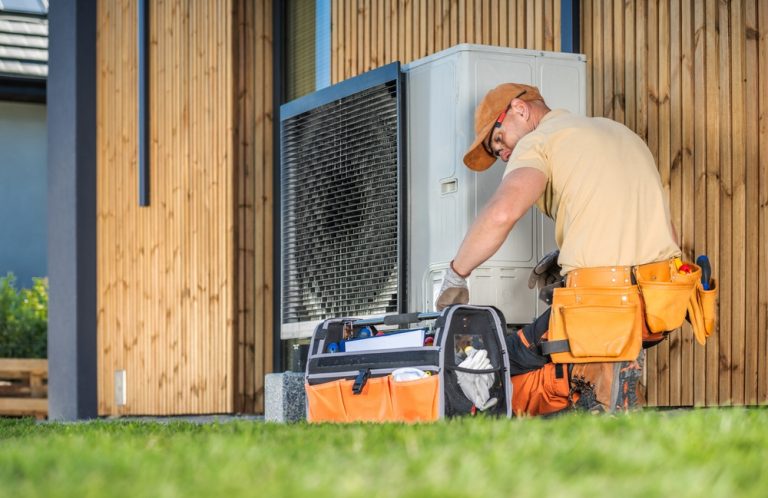Save Money on Air Conditioning Costs!
It’s quite possible to keep your home cool this summer without necessarily causing your electric bill to overheat above the norm. Almost 90 percent of American homes have their own air conditioners, and AC units typically consume six percent of all the electricity made in the United States, costing homeowners somewhere around $29 billion annually, according to U.S. Department of Energy (DOE) reports.
U.S. households are also expected to spend around $176 per month on electricity bills over June, July, and August 2023, according to the U.S. Energy Information Administration (EIA). Moreover, a big chunk of that might go toward running the AC as temperatures tend to soar during the summer months.
Air conditioning accounts for around 12% of monthly power bills, and as much as 27 percent in hot, humid states like Florida or Louisiana.
However, the bad news is that summers are more likely to get hotter as time goes by. Climate change is definitely placing a huge burden on our electrical grids, according to the Environmental Protection Agency, and is further expected to expand.
The result might be an 8 to 13 percent increase in energy demand from air conditioning usage in the next ten years, as the American Geophysical Union predicts. There are plenty of utility companies that constantly raise their rates in the summer.
This year, Americans are expected to spend around 2% more, on average, on their monthly electricity bill, as the EIA predicts. The good news is that there are always other ways to cut the cost of cooling your home without actually busting your budget or even wiping out your savings. Here are some of the best ways in which you can save money on your air conditioning and electric bills.

Throw a bit of shade around the house.
I know it might seem redundant, but in reality, planting leafy trees around your home might help block the sun and keep your house cooler. Most heat that accumulates inside any house comes right from the sun shining onto the roof or even through the windows and heating the house directly.
Planting tall trees on the south side of the property and broad trees to the west and east. Moreover, if you have a large window that’s facing east or west, you will get a lot of sun in the morning and afternoon and plenty of solar rays coming from low in the sky. It’s worth taking into consideration.
Cover the windows.
As a general rule, around 30 percent of a home’s heating or even cooling energy is mainly lost through windows. During the summer, around 76 percent of the sunlight on windows enters in the form of heat. Solar screens, or even mesh-like window screens, can easily intercept the energy right before it gets into the house.
Window screens are especially effective on east- and west-facing windows. If you are able to install them on the outside, that’s the way to do it. This would also stop solar energy before it completely goes through the glass.
It’s much better than anything you could do on the inside. Window films are yet another money-saving option. They are often metalized sheets that reflect heat even before it gets transmitted through glass. If you can use something white or silver, or something that’s quite reflective, it will stop it from getting through the glass.
Get smart about the thermostat.
If you haven’t done it already, it could be the right time to switch to a programmable or even a smart thermostat that can be easily set to adjust the temperature in your home depending on the hours of the day.
Smart thermostats might enable you to keep a comfortable temperature in your home, and moreover, most of them can be operated remotely from your telephone. They generally cost around $300.
You can keep your programmable thermostat set as high as you feel comfortable. When you’re away, you can set the temperature even higher. This way, you will trim 10% of your energy bill by setting your thermostat 7 to 10 degrees higher for eight hours a day. If you don’t have a thermostat, here’s one that will change your life – for the better!

Install ceiling fans.
If you can, run ceiling fans on your home’s upper level, then open the windows on the lower level. For instance, if you live in a one-story house or apartment, you can close the windows near the fan and open the windows in rooms far away from the fan, preferably on your home’s windward side.
The whole idea is to circulate the air inside the house. If you run a ceiling fan, you can easily raise your thermostat setting by 4 degrees without needing to compromise your comfort level. During summertime, you can run ceiling fans in a counterclockwise direction, then turn off the fans when you leave a room.
Service the AC
In all fairness, it’s an upfront investment—and not necessarily a glamorous one. However, keeping up with routine maintenance on your air conditioning unit might help reduce its energy consumption.
In fact, you would be surprised to know that clean filters alone can trim your unit’s energy use by 5 to 15 percent, according to the U.S. Department of Energy. Filters might need more frequent cleaning or replacing, especially if there’s plenty of dust from furry pets.
A clogged or dirty filter blocks airflow, reducing the efficiency of the unit. The coils in the evaporator and condenser might collect a lot of dirt as well, and they also need periodic cleaning.
Go with a state-of-the-art cooling system.
If your AC system is old, chances are it will be less efficient and break down more often. You can cut your energy costs by swapping an old air conditioner for a brand new unit with a high energy-efficiency ratio, also known as EER, found on any Energy Star-qualified unit.
Energy Star is the main system used by the U.S. government to designate energy-efficient products. In fact, the higher the rating, the better the system. It’s worth taking into consideration the climate you live in before buying an air-conditioning system.
For instance, evaporative coolers might be more economical than central AC units, but they aren’t suited for humid climates such as Florida. However, they work very well in hot, dry places like Arizona.
Seal the leaks.
A drafty house is not an energy-efficient house. You can do a visual check inside and outside the home and search for gaps, cracks, and openings where air might come and go.
Windows and doors are, naturally, the most obvious places you should check, but there are still many other areas that are prone to leaks, like where the home’s foundation meets the exterior brick and siding. For a complete assessment of your property, you should hire a professional technician for an energy audit.
Avoid using your stove and oven.
I know you might think your air conditioner just has to strain on hot days, but it can be forced to do way more work when you create heat as well. That also includes using major appliances such as your stove or oven.
Consider using them at night, when the temperature is cooler. If possible, you might even consider building an outdoor kitchen. It might use energy, but it won’t contribute to your air conditioner working every time.
Head for the basement.
It’s commonly known that heat rises. So it also makes a lot of sense to camp out in the basement, if you even have one. Just make sure you don’t open the basement windows when it’s humid because warm and moist air might cause condensation on cool surfaces, like basement walls, which would ultimately increase the humidity in your home.
Open your windows, close the doors, and be smart about ventilation.
You need to learn to ventilate with precision and a bit of strategy. If you live in a climate where the temperature drops after sundown, you should consider turning your air conditioner off and just letting the breezes cool your home after dark.
Then, open the windows overnight. Truth be told, this strategy might not be too good for those in the South or Midwest. However, residents in any region might remember to seal off rooms they’re not actively using.
Closing the doors and vents can also help you redirect chilled air toward the areas you are spending time in, so you’re not paying to cool empty parts of your home. This might also help to keep cooling bills a bit lower around the clock.
Unplug devices that are not in use.
This tip can save you plenty of money throughout the year, and not just on air conditioning costs. However, in warmer months, when your energy bill might be at its peak already, we advise you to unplug your devices and appliances that aren’t in use.
These can help you save a couple of dollars on your electricity usage. Moreover, if you use mobile or window-unit air conditioners in your own home, try to unplug them completely if you don’t need them.
If you found this article useful, we also recommend checking out: 5 Purchases You Should NEVER Make with Cash














